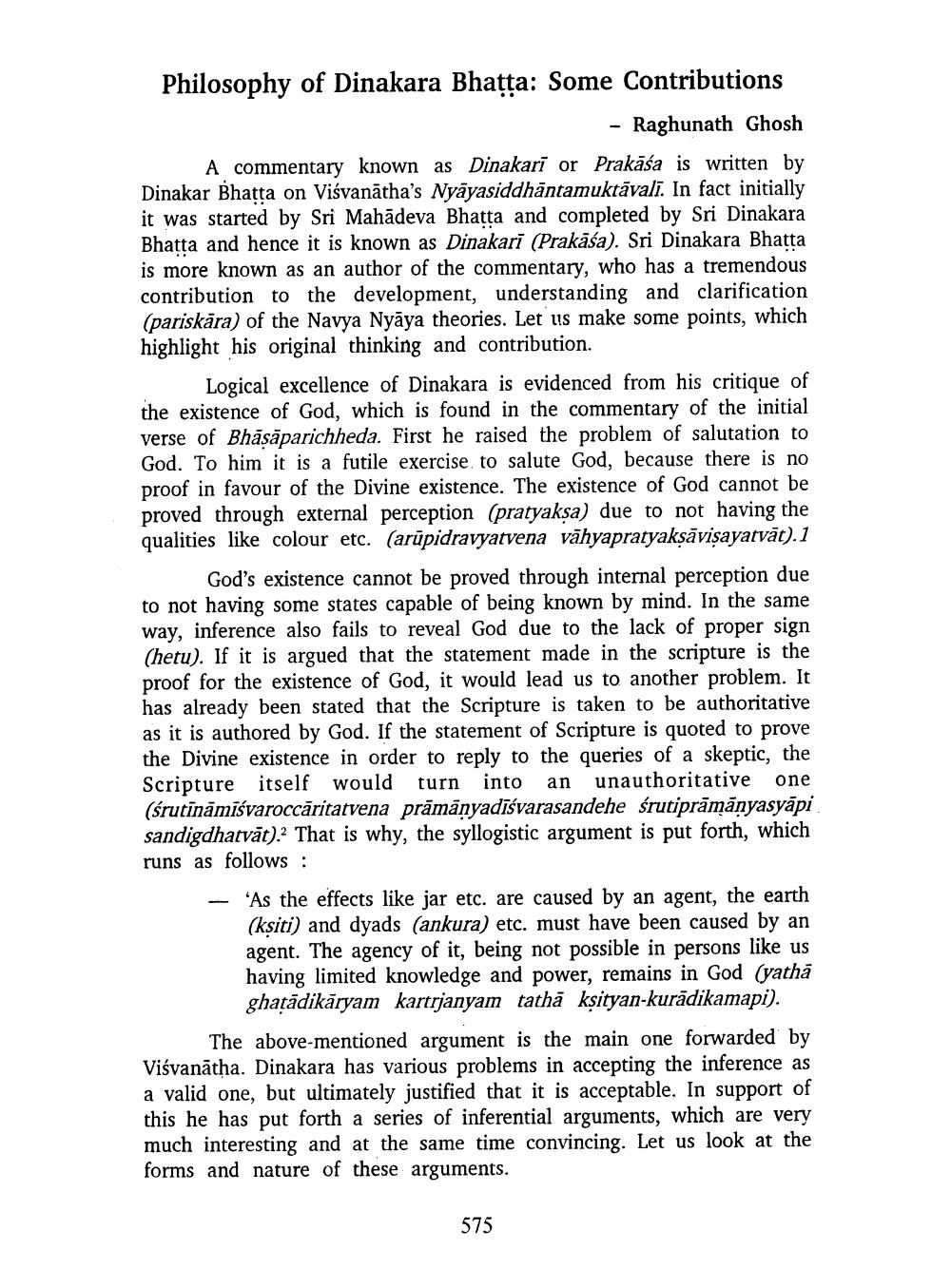________________
Philosophy of Dinakara Bhatta: Some Contributions
- Raghunath Ghosh A commentary known as Dinakarī or Prakāśa is written by Dinakar Bhatta on Viśvanātha's Nyāyasiddhantamuktāvali. In fact initially it was started by Sri Mahādeva Bhatta and completed by Sri Dinakara Bhatta and hence it is known as Dinakari (Prakāśa). Sri Dinakara Bhatta is more known as an author of the commentary, who has a tremendous contribution to the development, understanding and clarification (pariskāra) of the Navya Nyāya theories. Let us make some points, which highlight his original thinking and contribution.
Logical excellence of Dinakara is evidenced from his critique of the existence of God, which is found in the commentary of the initial verse of Bhāsaparichheda. First he raised the problem of salutation to God. To him it is a futile exercise. to salute God, because there is no proof in favour of the Divine existence. The existence of God cannot be proved through external perception (pratyaksa) due to not having the qualities like colour etc. (arupidravyatvena vahyapratyakşāvisayatvat). 1
God's existence cannot be proved through internal perception due to not having some states capable of being known by mind. In the same way, inference also fails to reveal God due to the lack of proper sign (hetu). If it is argued that the statement made in the scripture is the proof for the existence of God, it would lead us to another problem. It has already been stated that the Scripture is taken to be authoritative as it is authored by God. If the statement of Scripture is quoted to prove the Divine existence in order to reply to the queries of a skeptic, the Scripture itself would turn into an unauthoritative one (śrutīnāmīśvaroccăritatvena prāmányadīśvarasandehe śrutiprāmānyasyāpi sandigdhatvāt). That is why, the syllogistic argument is put forth, which runs as follows:
- 'As the effects like jar etc. are caused by an agent, the earth
(ksiti) and dyads (ankura) etc. must have been caused by an agent. The agency of it, being not possible in persons like us having limited knowledge and power, remains in God (yathā
ghatādikāryam kartrjanyam tathā ksityan-kurādikamapi).
The above-mentioned argument is the main one forwarded by Viśvanātha. Dinakara has various problems in accepting the inference as a valid one, but ultimately justified that it is acceptable. In support of this he has put forth a series of inferential arguments, which are very much interesting and at the same time convincing. Let us look at the forms and nature of these arguments.
575




